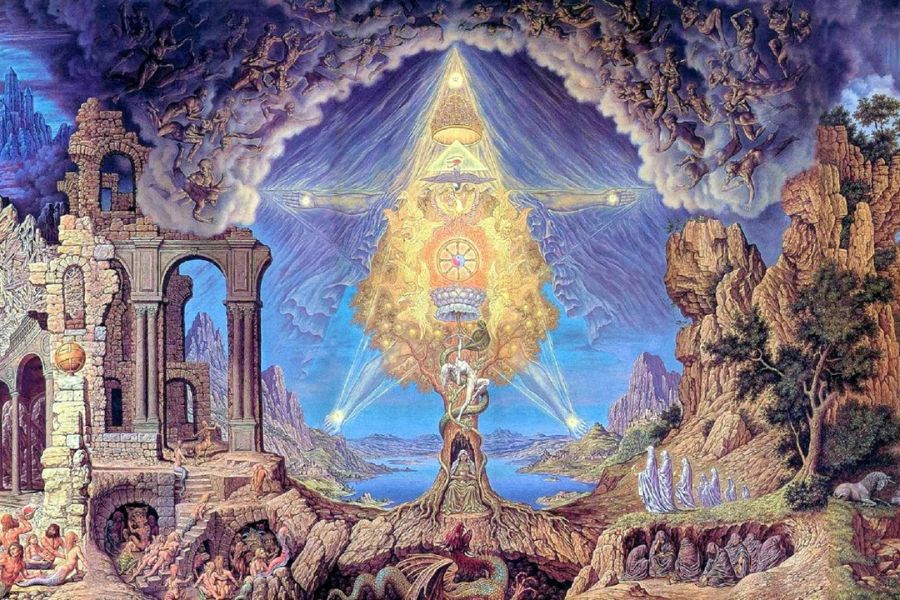The path to true human consciousness evolution, according to Samael Aun Weor, is not limited to the pursuit of inner knowledge or individual transcendence.
For him, the true spiritual revolution involves three essential factors: birth, death, and sacrifice for humanity. Among these factors, the third holds fundamental importance, as it is through genuine sacrifice for others that we truly approach the divine essence within us and attain true illumination.
The concept of sacrifice, as presented by Samael Aun Weor, should not be confused with isolated acts of giving. True sacrifice requires more than words of affection or superficial acts of kindness. It is not enough to say that we love our fellow beings. Love must be expressed through concrete, objective, and unconditional actions. Love is not an act of pure sentimentality, but a true commitment to the common good—the cause of humanity as a whole.
This love must be demonstrated through the sincere desire to illuminate the paths of others, helping them to escape the darkness of ignorance and suffering. This effort, as an act of sacrifice, means being willing to give even the last drop of blood for the benefit of others, with a disinterested, pure, and true love. This implies renouncing selfishness and embracing the idea that true happiness is not achieved in isolation or selfishly, but through the happiness of others.
Samael Aun Weor emphasizes that if only the first two factors—the birth and death—are experienced without the third, sacrifice, spiritual egoism takes hold in a dangerous way. Simply seeking personal inner transformation without caring for others is a form of refined egoism that prevents any genuine progress on the spiritual path. True illumination occurs only when there is a constant concern for the well-being of all human beings, for we are all brothers, regardless of race, creed, color, or social class.
This perspective leads us to understand that humanity, in its entirety, forms one great family. We often limit our view of fraternity to the close circle of friends and family, but the Gnostic call goes beyond, insisting that all human beings should be treated as part of this great web of existence. True love and sacrifice manifest when we can see a brother in every human being, even in those who reject or hate us.
In this way, Aun Weor warns us about the presence of resentment in our hearts. Resentment, a disguised form of hatred, blocks the natural flow of love. Where the ego of resentment exists, love cannot blossom. True forgiveness is not simply a mechanical act or a matter of compliance. To truly forgive, it is necessary to eliminate the ego of resentment, vengeance, and hatred, which are powerful obstacles to developing the true capacity to love.
Therefore, sacrifice for humanity, in its deepest form, requires us to work on ourselves, to self-investigate and uncover our hidden motivations. We must be honest with ourselves, recognizing our limitations and the negative elements in our psyche that prevent us from loving fully. True love, for Samael Aun Weor, is something sublime, which requires continuous effort and profound inner transformation. It does not manifest in superficial attitudes or automatic gestures but in a real and radical change in our consciousness, which can only be achieved when we sacrifice ourselves, in a true and consistent way, for others.
Thus, the true revolution of consciousness is not a solitary pursuit. It requires a commitment to the whole, a clear vision that our happiness is intertwined with the happiness of all human beings. As Samael Aun Weor teaches us, genuine happiness is achieved through sacrifice, true love, and relentless effort to illuminate the way for those still in the darkness. When we can look at the world with eyes of compassion, we begin to truly understand the meaning of the revolution of consciousness.




















